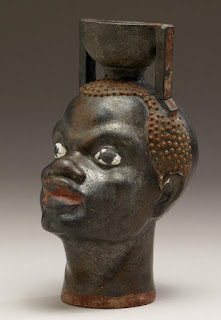The Economist: Who cares who is right on name issue?
A USEFUL test for an outsider trying to analyse an argument is to assume that one side is right and then to work out the consequences. If an analysis of eggshells conclusively proves that an egg is better opened at the big end rather than the small one, what follows? And if the assumption is reversed, how bad would it be to have got it wrong? Eggshells, as Jonathan Swift so bitingly observed in “Gulliver’s Travels”, are not worth getting cross about. The cost of a lifetime spent opening eggs incompetently is a small amount of wasted time and some spilled yolk. At the other extreme, take the question of whether Iran has nuclear weapons: get that wrong and you may either see Israel wiped off the map, or, alternatively, a catastrophic and unnecessary pre-emptive strike on Iran.
This column’s recent attempt to look at the name dispute between Greece and its northern neighbour (FYROM to the Greeks, Macedonia to the locals) became the most-commented article ever to appear on the Economist website. A second column, which highlighted some similar issues in the post-communist world (and suggested that they might be overblown), was a runner-up.
At the risk of provoking ruptured spleens all round, here is a third attempt, using the principle outlined in the first paragraph. What if the Greeks are right? What if the other camp is right? In each case, does it matter?
The Greek case (crudely stated) is that Macedonia is a title properly belonging a) to ancient Macedonia and b) to the northern Greek province that bears that name. Communist Yugoslavia applied the label to its southern province (which in fact speaks a dialect of Bulgarian) as a provocation, in the aftermath of the Greek civil war. If it were to accept “Macedonia” as a name for the former Yugoslav republic, Greece would legitimise that communist name-grab and lay itself open to territorial claims, or even terrorism. It stubbornly refuses to allow its northern neighbour’s application for European Union and NATO membership to proceed until it budges on the name issue.
Assume Greece’s argument is right. Would it matter? The globe is studded with ancient, buried hatchets involving names and places (which came first: Bretagne or Grande-Bretagne? Who cares?) Logically preposterous toponyms are the rule, not intolerable exceptions. So set aside that argument, unless you are trying to drum up business for map publishers.
Nor does the argument about dangerous irredentism stand up. As a relatively big country, and a member of the EU and NATO, Greece can scarcely plead persecution from its small northern neighbour. The last 20 years show that expanding the EU and NATO is the best way of making troubled neighbourhoods safer. But even if there is a danger of terrorism from Skopjean extremists, how should it be contained? By including Macedonia in western clubs, prosperous and, with luck, well governed? Or by keeping it weak, divided and isolated?
So even if the Greeks are right, the course of action looks wrong. What of the Macedonian/FYROM side? Assume its most hardline protagonists are right: that they are the heirs to an ancient civilisation, whereas Greece is an ethno-nationalist bully with fascist undertones that oppresses a Slavic minority in the north. If that’s true, then the EU and others ought to be more worried than they are. But it has little bearing on the name of the northern neighbour.
On that basis, the verdict is clear. If the Skopje authorities are right, then withholding recognition of their name is an outrage. If they are wrong, even if they are silly and provocative, it is not worth breaking eggshells to set them right. Giving them their favoured name costs less than Greece claims, and has big benefits, for everyone, in increased stability.



